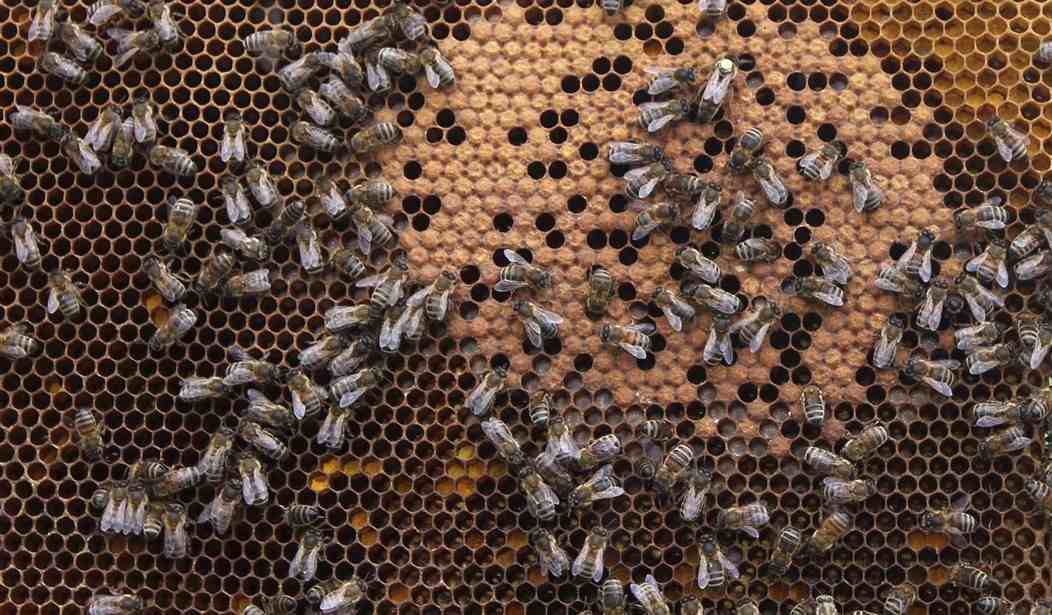Have you heard about the "bee-pocalypse?" My new video explains.
Honeybees are dying!
It's another environmental crisis we're supposed to worry about.
The media call it "bee-pocalypse" and "bee-mageddon!"
A YouTube video with 15 million views says bee-mageddon "could lead to millions of people starving!"
Even Fox News shrieked, "Do you like to eat? The disappearance of honeybees could have a drastic impact on our nation's food supply!"
It's nonsense.
Now, it's true that, about 20 years ago, many American bees did die. Beekeepers opened hives and found their bees gone. Scientists called it "colony collapse disorder." No one knows what caused it. After the initial dramatic reports, it's steadily diminished.
But media hysteria hasn't.
Beekeepers adjusted to colony collapse. They divided remaining colonies to make new hives. Bee numbers increased by millions.
"We're not in any way facing an apocalypse," says Science journalist Jon Entine. "Things have never been better in terms of the numbers of bees."
Entine runs the Genetic Literacy Project, which challenges scientific misinformation.
I remind him that the media continue to run scare stories.
"Bees are dying at an alarming rate," says NBC.
CNN headlines: "Bee Population is Dying ... the food we eat is at risk."
It's so stupid.
"They could have just Googled bee population and they would've seen them going up?" I ask.
"Absolutely," responds Entine, "it's farcical."
In 2013, Time Magazine's cover predicted "A World Without Bees"!
"I don't remember seeing Time apologize," I tell Entine.
"Time has not even written a new article that puts this in science perspective," he responds. Nor did The New York Times magazine correct its cover story on "The Insect Apocalypse." They just "skipped on to another 'crisis.'"
Recommended
"There's always a scare," I point out.
"Catastrophe, exaggeration," he says, "That gets the clicks."
Entine complains that the media rarely interview serious scientists for its scare stories.
"They have the Environmental Working Group or Pesticide Action Network framing these issues ... Hysteria generates donations. The oxygen for these organizations is money."
Sadly, "Many of these (environment) groups harm people."
How? By convincing gullible politicians to ban fertilizers and new pesticides even though the new chemicals are usually safer.
For example, even with worldwide honeybee populations at record highs, the European Union prohibited the use of noenicitinoids, a common insecticide, out of fear they might kill bees.
That means farmers use older, more dangerous chemicals that actually do kill bees.
But why use these chemicals at all?
I push back at Entine, "'Natural' food advocates say: 'Organic! You don't have to have chemicals! Buy organic and you don't get them!"
Entine laughs and says, "They use chemicals extensively! It's not like organic farmers can sprinkle organic fairy dust to get rid of insects and weeds."
Instead, they use "natural" chemicals "like copper sulfate," he says, "one of the most toxic chemicals in the world!"
Sri Lanka's president listened to activists and banned chemical fertilizers.
Suddenly, farms produced much less food. Prices rose 80%.
Sri Lankans invaded the presidential mansion and the president fled his country.
The new government re-legalized chemical fertilizers. Only then could the crisis end.
"This attack on industrial chemicals," says Entine, "is really a way for the environmental industry, industry is what it is, to go after what they call big (agriculture), big corporations. It's an anti-capitalist movement."
The anti-capitalists oppose genetically modified organisms (GMOs). They've persuaded most European countries to basically ban GMO crops.
But genetic modification allows farmers to grow more food on less land. It creates plants resistant to disease and insects. That allows farmers to use fewer pesticides. That's good for everyone, especially poor people.
In Bangladesh, scientists invented a GMO eggplant.
"It decreased use of chemicals by 85%," says Entine. "Allowing women and children who do most of the farming to live a much more viable life. We have to be smart about these things!"
"We're not being smart," I note.
"No," he says, "We're following an outdated 40-year-old environmental script that doesn't work in this technologically innovative world. ... They hurt the very people they claim to help."
Modern chemicals and GMOs make our food cheaper and safer.
Deceitful money-hungry environmental groups won't acknowledge that.

























Join the conversation as a VIP Member